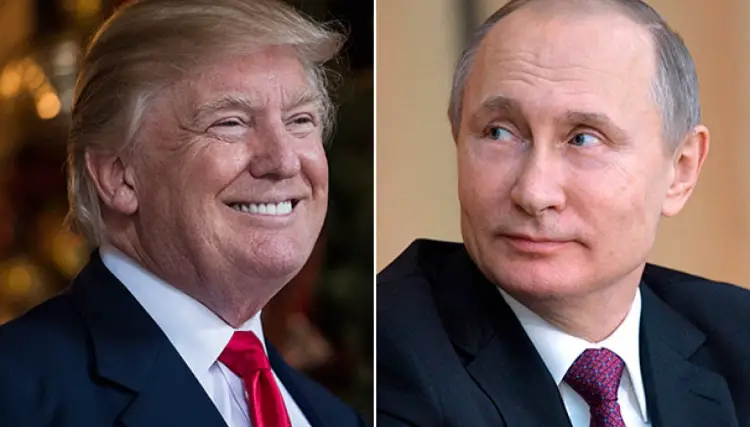There has been a lot of hand-wringing over Russia’s attempt to disrupt American elections—and just about everything on which the West is based. We shouldn’t have been surprised. They announced their intentions, fairly openly, in 1999. The goal was to regain Russian superpower status—largely by reducing the power of the west. Of course, as Trump might say, we’re guilty, too. We also want to dominate the world.
In 1997, a neoconservative think-tank called, “The Project for The New American Century (PNAC)” set out its own principals—to work toward American “hegemony.” Founded by the Weekly Standard’s Bill Kristol and Robert Kagan, who has written for publications as wide as The Wall Street Journal, Commentary, and the Washington Post. Twenty-five people signed the founding statement of principles, including George Bush, Dick Cheney, and Donald Rumsfeld.
It’s goal was to “shape a new century favorable to American principles and interests. It said the United States should strengthen ties with its democratic allies, ‘challenge regimes hostile to our interests and values,’ and preserve and extend ‘an international order friendly to our security, our prosperity, and our principles.’. . . Kristol and Kagan advocated regime change in Iraq.”
In order to force America’s wishes on the world, “PNAC’s 1997 Statement of Principles, Rebuilding America’s Defenses asserted that the United States should ‘seek to preserve and extend its position of global leadership’ by ‘maintaining the preeminence of U.S. military forces.’” It should be noted that America already spends more than one-third of defense spending in the entire world. We spend more than the next seven highest spenders—put together.
With that in mind, now, let’s look at Russia’s own plans, as reported in the New Zealand Herald.
Ever wondered what Vladimir Putin is up to infiltrating the US elections? Surprisingly, there is an answer to that.
In 1997, a Russian political scientist named Aleksandr Dugin and a serving Russian General named Nikolai Klokotov sat down and wrote a text that would become the foundation of Russian geopolitical strategy over the next 20 years. It was called “Foundations of Geopolitics” and it was all about how Russia could reassert itself in the world.
Chillingly, the book now reads like to-do list for Putin’s behaviour on the world stage. . .
The book starts out by saying that the shrewd thing for Russia to do is to steer clear of direct military confrontation. The book counsels Russian leaders instead to favour political stealth. It emphasises the need for the infiltration of Western institutions, and the use of soft power to shape the world in Russia’s favour. Sound familiar yet? We haven’t even got to the good stuff.
The book is quite detailed and is almost like Nostradamus in predicting the future. For instance, it says Russia should annex Ukraine.
“Ukraine as a state has no geopolitical meaning, no particular cultural import or universal significance, no geographic uniqueness, no ethnic exclusiveness, its certain territorial ambitions represents an enormous danger for all of Eurasia and, without resolving the Ukrainian problem, it is in general senseless to speak about continental politics.”
How about Britain? Brexit was Putin’s idea.
The book’s authors say Russia’s should encourage Britain to leave the European Union, and thus weaken it. That’s right. Russian strategists were openly arguing in favour of Brexit in 1997, when it was still just a glimmer in Nigel Farage’s eye’s.
What about Syria, Iran, and Turkey?
It identifies Iran as a key ally for Russia, and recommends that Turkey should receive a series of “geopolitics shocks” using Kurds and Armenians to keep it off-balance. I’d give that Putin: 4, Rest of World: 0.
Nixon tried to increase American influence by “triangulating,” that is, playing the Soviets against China. Russia’s “Foundations of Geopolitics” says to make sure that doesn’t happen again, by deliniating spheres of influence.
It says that China should be encouraged to have its geopolitical posture aligned to its south – Indo-China (except Vietnam), the Philippines, Indonesia, Australia – so that Russia can remain predominant on the “Eurasian” mainland. It also talks about making Germany and France the predominant powers in the European Union, in order to unbalance that alliance, and encourage an anti-Atlantic sentiment on the continent. Score so far is Putin: 6, Rest of World: 0.
How about America? Are we at each other’s throats—more divided than any time in American history—by accident? Maybe not. . .
But perhaps most amazing part of the book is when it calls for Russia to “introduce geopolitical disorder into internal American activity, encouraging all kinds of separatism and ethnic, social and racial conflicts, actively supporting all dissident movements – extremist, racist, and sectarian groups, thus destabilizing internal political processes in the U.S. It would also make sense simultaneously to support isolationist tendencies in American politics.”. . . Putin: 7, Rest of World: 0.”
As noted in the previous article, Trump probably did not collude with Russia to win election—but his actions and speeches clearly support Russia’s goals around the world, by saying Russia probably should keep Crimea, by supporting Brexit, undermining NATO, by encouraging Russia’s support of Bashar al Assad in Syria, and more. Should Trump’s slogan really be “Russia First?”
Donate Now to Support Election Central
- Help defend independent journalism
- Directly support this website and our efforts
